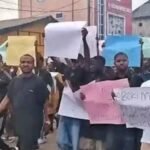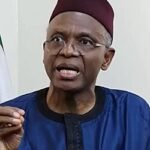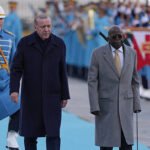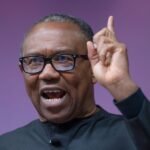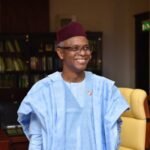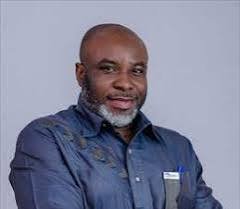
Prof. Chiwuike Uba, a Professor of Developmental Economy; and Board Chairman of ACUF Initiative for Policy and Governance (ACUFIPOLGOV)

By Prof. Chiwuike Uba,
(a Professor of Developmental Economy; and Board Chairman of ACUF Initiative for Policy and Governance (ACUFIPOLGOV)
President Bola Ahmed Tinubu’s 2025 Democracy Day address to the National Assembly comes at a moment of profound historical significance and pressing national challenges.

As Nigeria commemorates 26 years of uninterrupted democratic rule, the speech is both a reminder of how far the nation has come and a sobering reflection of the democratic deficits that persist.
In tone and substance, the address strikes familiar chords of hope and national renewal, yet it often skirts the deeper structural and systemic reforms necessary for transformative progress.
Any meaningful assessment of the address must therefore grapple with the broader contours of Nigeria’s democratic evolution, socioeconomic landscape, and the urgent imperatives of inclusive governance.

Nigeria’s democratic journey has been marked by resilience but also by regression. Since the return to civilian rule in 1999, democratic institutions have remained formally intact, but their functional capacity has been undermined by executive overreach, legislative inertia, and a weakened judiciary.
President Tinubu’s address acknowledges democratic milestones but does not adequately confront the erosion of civil liberties, shrinking civic space, or the alarming trends in media repression and civic activism suppression.
The absence of concrete commitments to institutional reforms—such as strengthening judicial independence, electoral transparency, and anti-corruption mechanisms—reveals a gap between rhetorical commitment and democratic consolidation.
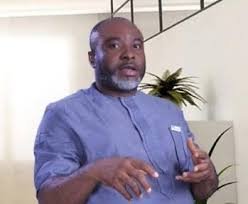
Equally missing is a coherent national agenda for civic education and democratic literacy, without which popular participation risks being reduced to periodic voting rather than a sustained culture of democratic engagement and accountability.
In an era defined by digital transformation, the President’s silence on digital governance, data protection, and the fight against disinformation represents a missed opportunity. Nigeria’s democracy must evolve with its technological realities, ensuring that digital spaces remain free yet responsibly regulated, and that digital literacy, broadband access, and open government data are prioritized as tools of democratic accountability.
While democratic milestones were mentioned, the failure to commit to deep electoral reform—especially in the aftermath of controversial elections—could have been flagged more clearly. Public trust in elections has eroded significantly.
The address was notably silent on the urgent need for comprehensive electoral reform. Strengthening the independence and operational integrity of the Independent National Electoral Commission (INEC), reforming campaign financing laws, and ensuring the prosecution of electoral offenders are essential to restoring credibility in Nigeria’s democratic process.
A thriving democracy rests on the rule of law, not the rule by law. The chronic disregard for court orders, prolonged detentions without trial, and abuse of security agencies for political ends must be addressed head-on.
Nigeria needs a reinvigorated human rights framework, with strengthened institutions such as the National Human Rights Commission and a depoliticized judicial system. These are essential to reversing the erosion of public trust and ensuring that justice is not only done, but seen to be done.
Economically, Nigeria is facing its most precarious moment since the structural adjustment era. Inflation remains stubbornly high, unemployment is widespread—especially among youth—and poverty continues to deepen, particularly in rural and conflict-prone regions.
The President’s speech outlines a broad economic vision but fails to provide granular, actionable plans for addressing these structural imbalances.
The removal of fuel subsidies and floating of the naira, while fiscally orthodox, have compounded hardships for millions, without the cushion of social protection systems or a clearly communicated reform sequencing strategy.
What is equally troubling is the lack of transparency on how savings from fuel and electricity subsidies—and the proceeds of continued public borrowing—are being utilized. Nigerians deserve clear, periodic reports on the outputs, outcomes, and long-term impacts of these fiscal choices.
Without such transparency and impact tracking, reform efforts risk being perceived as extractive rather than developmental.
A robust economic governance framework must prioritize not just growth, but equity, productivity, and institutional accountability in public financial management at both national and subnational levels.
Social protection should not be viewed as a temporary palliative, but as a permanent architecture for resilience, particularly for the poor, the unemployed, and those vulnerable to economic shocks. Local governments, which are closest to the people, must also be empowered through credible devolution, fiscal federalism, and mechanisms for community-led development.
Subnational democracy—often weakened by patronage, state capture, and the absence of checks and balances—requires urgent revitalization through legal and institutional reforms.
True federalism is not merely a constitutional ideal but a developmental necessity. The President’s speech did not offer a roadmap for recalibrating center-state relations, addressing revenue allocation inequities, or empowering states to drive innovation in governance.
As long as fiscal and political centralization persists, local accountability and responsive governance will remain elusive. A new democratic compact is needed—one that decentralizes power, enhances intergovernmental coordination, and respects the autonomy of state and local governments.
Crucially missing in the President’s message is a coherent approach to regional disparities. The northern parts of the country, particularly the North East and North West, continue to suffer from multidimensional poverty, limited infrastructure, and protracted insecurity.
The Niger Delta, despite decades of agitation and resource wealth, remains underdeveloped and environmentally degraded. Meanwhile, the South East grapples with political and socioeconomic marginalization and violent agitation.
A unifying national agenda must reflect the country’s federal diversity and allocate responsibilities and resources in ways that are responsive to regional priorities and grievances. This includes honest engagement with historical injustices and a transitional justice framework that acknowledges the wounds of the past while forging a path to national healing and unity.
The omission of climate change and environmental sustainability from the President’s address is a significant blind spot. From desertification in the North to flooding in the South, the climate crisis threatens lives, livelihoods, and national stability.
Nigeria needs a just energy transition strategy that balances its development needs with environmental justice, including clear commitments to green jobs, renewable energy, and ecological restoration in regions like the Niger Delta. Environmental governance must become a core pillar of national planning, not an afterthought.
Youth engagement remains one of Nigeria’s most underutilized assets. With over 60% of the population under the age of 25, young people are a demographic and democratic force.
Yet, their political inclusion remains marginal, often limited to tokenistic roles or manipulated through patronage networks. The address does not lay out a youth-specific democratic or economic strategy. Reforms must aim at transforming education systems, scaling vocational and digital skills, and institutionalizing pathways for youth leadership in party politics, policymaking, and civil society.
This also requires dismantling legal and informal barriers to political participation, including exorbitant nomination fees, rigged primaries, and the criminalization of protest.
Gender inclusion, another critical pillar of democracy, was only briefly acknowledged. Nigerian women remain underrepresented in all spheres of governance despite constitutional guarantees and international commitments.
The persistent failure to pass gender equity bills and the lack of targeted investments in women’s economic empowerment speak to a deeper sociopolitical neglect.
A forward-looking democracy must dismantle legal, cultural, and economic barriers that hinder women’s full participation, while also embedding gender-responsive budgeting and policymaking across all government levels.
The success of any reform agenda lies not just in vision but in institutional continuity. Nigeria’s democracy would benefit from mechanisms that insulate critical national reforms—particularly in education, health, and public service delivery—from partisan disruptions. Building resilient institutions, rather than strongmen, must become the cornerstone of democratic consolidation.
A long-term development framework, protected from political volatility, is essential to fostering public trust and sustained progress.
Security, a foundational pillar of any democratic state, received considerable attention in the President’s speech, but mostly in operational terms. The militarized approach to insecurity—whether in counter-insurgency, anti-banditry, or secessionist containment—has not yielded sustainable peace.
A rights-based, development-led security framework is urgently needed, one that addresses the root causes of violence, such as inequality, exclusion, and governance failure.
Community-based policing, justice sector reform, and improved civil-military relations should form part of this recalibrated strategy. National security must be people-centered, with mechanisms for local accountability and inclusive peacebuilding.
The role of the diaspora, acknowledged briefly in the President’s address, deserves deeper strategic engagement. With millions of Nigerians abroad contributing over $20 billion annually in remittances, their potential in diplomacy, investment, innovation, and nation-building remains untapped.
A truly inclusive democracy should enfranchise diaspora voting rights, establish clearer frameworks for diaspora investment, and create formal mechanisms for their civic and policy participation.
Ultimately, the 2025 Democracy Day address reflects both the continuity and contradictions of Nigeria’s democratic project. It appeals to national unity and resilience, yet omits the hard truths and bold commitments necessary to forge a more inclusive and accountable polity.
For democracy to thrive in Nigeria, it must deliver not just on elections and symbolism, but on justice, opportunity, and dignity for all citizens.
A transformative path forward requires honest introspection, courageous leadership, and an unwavering commitment to the principles of democratic governance—participation, transparency, accountability, and equity. Only then can the hopes expressed in this address be matched by the lived realities of the Nigerian people. FLOWERBUDNEWS
(By Prof. Chiwuike Uba, a Professor of Developmental Economy, and Board Chairman of ACUF Initiative for Policy and Governance (ACUFIPOLGOV).


